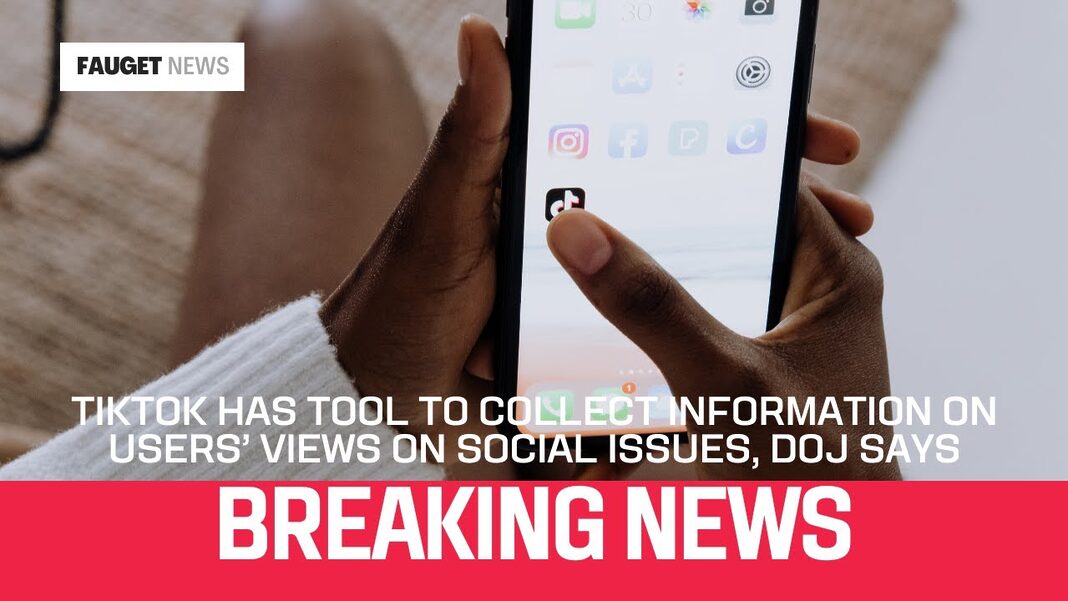The Chinese-owned popular video app targets users’ views on hot button issues such as gun control, abortion, and religion, the DOJ says.
TikTok and its China-based parent company, ByteDance, have a tool to collect information on users based on their views on topics such as gun control, abortion, and religion, according to the Department of Justice (DOJ).
In a brief filed with the U.S. Court of Appeals for the District of Columbia Circuit on July 26, the DOJ said TikTok employees were able to communicate directly with ByteDance engineers in China via an internal web-suite system called “Lark,” which also went by the name “Feishu.”
TikTok employees had “sent significant amounts of restricted U.S. user data” through Lark channels to “address various operations issues,” according to a court filing. It added this meant “certain sensitive U.S. person data” were being stored on Chinese servers and accessible to ByteDance employees in China.
One of the tools inside Lark would allow ByteDance and TikTok employees “to collect bulk user information based on the user’s content or expressions, including views on gun control, abortion, and religion,” a federal official said, according to the court filing.
Additionally, the DOJ’s court filing stated that TikTok had created “an internal project” in 2022 to remove certain sensitive U.S. user data alleged to be “improperly maintained” on Lark channels.
In the new brief, the DOJ urged the court to reject the lawsuit brought by TikTok and ByteDance in May. The two companies are challenging the constitutionality of a new law signed by President Joe Biden in April, requiring ByteDance to sell TikTok or be banned from mobile app stores and web-hosting services in the United States. The bill was approved by Congress with bipartisan support.
“The serious national-security threat posed by TikTok is real, as evidenced by the public record and confirmed by classified information supplied by the intelligence community,” the DOJ’s brief reads.
“The Chinese government’s authority over ByteDance enables it to gain access to and exploit that [user] information to undermine U.S. national security, including by developing and recruiting intelligence assets, identifying American covert intelligence officers and assets, and blackmailing or coercing Americans.”
By Frank Fang






